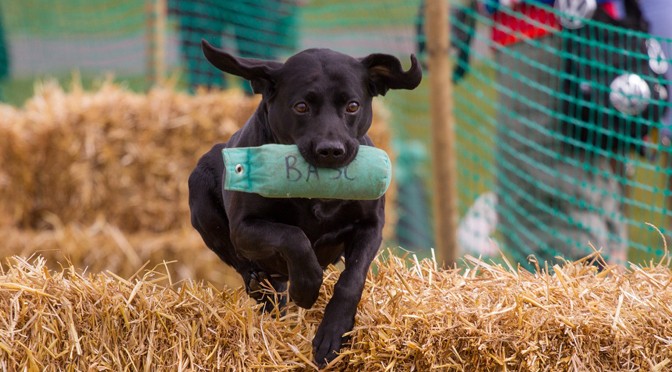From spring issue 2014
WORDS by Mary Bromiley
There is no disputing the fact that Staffordshire bull terriers and rottweilers have a reputation, in some quarters, for being both unreliable and savage.
That they are more often referred to affectionately as ‘Staffies’ and ‘rotties’, however, seems more than a little at odds with this. Before meeting some of these infamous breeds ‘in person’, I was lucky enough to have a preparatory chat with a dog whisperer, who gave me her opinion of these controversial breeds.
The Staffie, a cross between a bulldog and terrier and originally bred to fight, is, she told me, a very different character from the rottie, and one known, due to its gentleness with children, as a ‘nanny dog’. She had found Staffies to be a little “over courageous”, a characteristic which could sometimes lead to a tendency to “rush in without thinking”, and an “overwhelming desire to protect both owners and children”. “Should either be threatened or hurt,” she explained, “retaliation could be instantaneous”.
The rottweiler boasts a lineage dating back to Roman times when its ancestors accompanied the legions driving their food on the hoof. Maybe this is why the breed tends to “feel the need to do a job, to have a focus”. I learnt that it was the protective nature of the rottie which sometimes leads to aggression, with respect for the master being the key to a well-behaved dog.
Following this enlightening conversation, I set off to meet Carol Burnett, who is joint head girl in Philip Hobbs’ racing yard at Bilbrook – and owner of two Staffies and two rotties! My first impression? A raft of rosettes and trophies won in obedience classes immediately suggested that this was the home of biddable dogs!
Carol came to these breeds after owning her very first dog, Tye (a Jack Russell x Patterdale), who had ‘taught her all about training’. “He was hard-headed and stubborn, but I loved the challenge of learning to connect, followed by the elation when I got something back. I quickly realised how necessary and important training was for both of us.” Tye won a number of obedience classes, then, when he retired, Tikka, Carol’s first Staffie, moved into her house and heart. A strict home routine was backed up with obedience classes with Rosemary Munday who had helped with Tye.
“Tikka was such a different character, sharp and strong-minded; any lack of concentration on my part resulted in her becoming over excited and losing focus. I really had to persevere, but after 18 months I was winning. Then I heard that her half-sister needed a home and Deva moved in. She will do anything to please; I have never known a dog try so hard, she really wants to work, and she
is so driven she is sometimes OTT.”
Carol has found Staffies to be amazingly intelligent and keen to learn – and that the more they are taught the keener they are. “They are fantastic dogs but need an owner who will be fair, firm and consistent when training; they are not a ‘we’ll go out for a walk if it’s fine’ type of dog.” She confirmed, as I had already been told, that Staffies can rush into a fray if provoked!
Carol had also been keen to get a rottie for some time but could only do so once work flexibility and a house move combined to make this possible. It took several months of careful research with in-depth consideration of both health and temperament before a suitable pup was found. The new arrival, Bula, was sensitive and compliant, with ‘no difficult terrier traits’ as Carol had found in both Staffies. However, training took considerably more time in terms of ensuring that the dog was confident and did not try to over perform in an effort to please. “Once a lesson was learned, though, she gave her all and shines in competitions,” Carol told me, one eye straying over to Kane, her newest challenge, a male who “has to learn to focus while appreciating he must learn to control his inherent exuberance!”
Carol feels that neither breed deserves their current reputation, but emphasised that the genetic breed characteristics of Staffies can cause problems without training and education, and that this calls for dedicated owners. The rottweiler – large, friendly, a macho symbol – is “easily trainable”, but, like the Staffie, its background has not been obliterated; untutored, it expects to herd and guard. I was pleased to have met some interesting dogs and fascinated that Carol, who did not know I had talked to a whisperer, confirmed all of her findings!
Top from left: Carol’s three competing dogs – Kane at eight months old (show name Pendley Ivanhoe), Deva (Rascals Evolution) and Bula (Thunderhead Heaven Sent).
If you have a potential candidate to put forward for our Final Paws page which appears in every issue of the magazine then please get in touch.
STOP PRESS: After this story was published we heard the exciting news that Kane has qualified for crufts!







 by
by